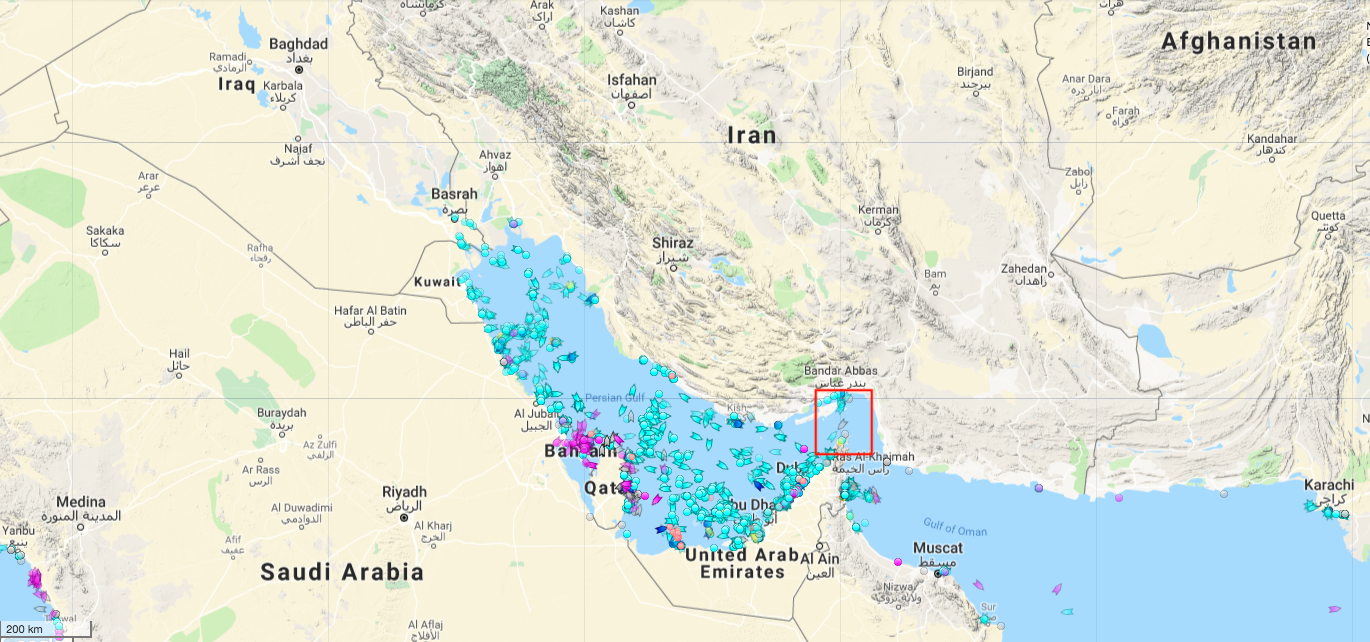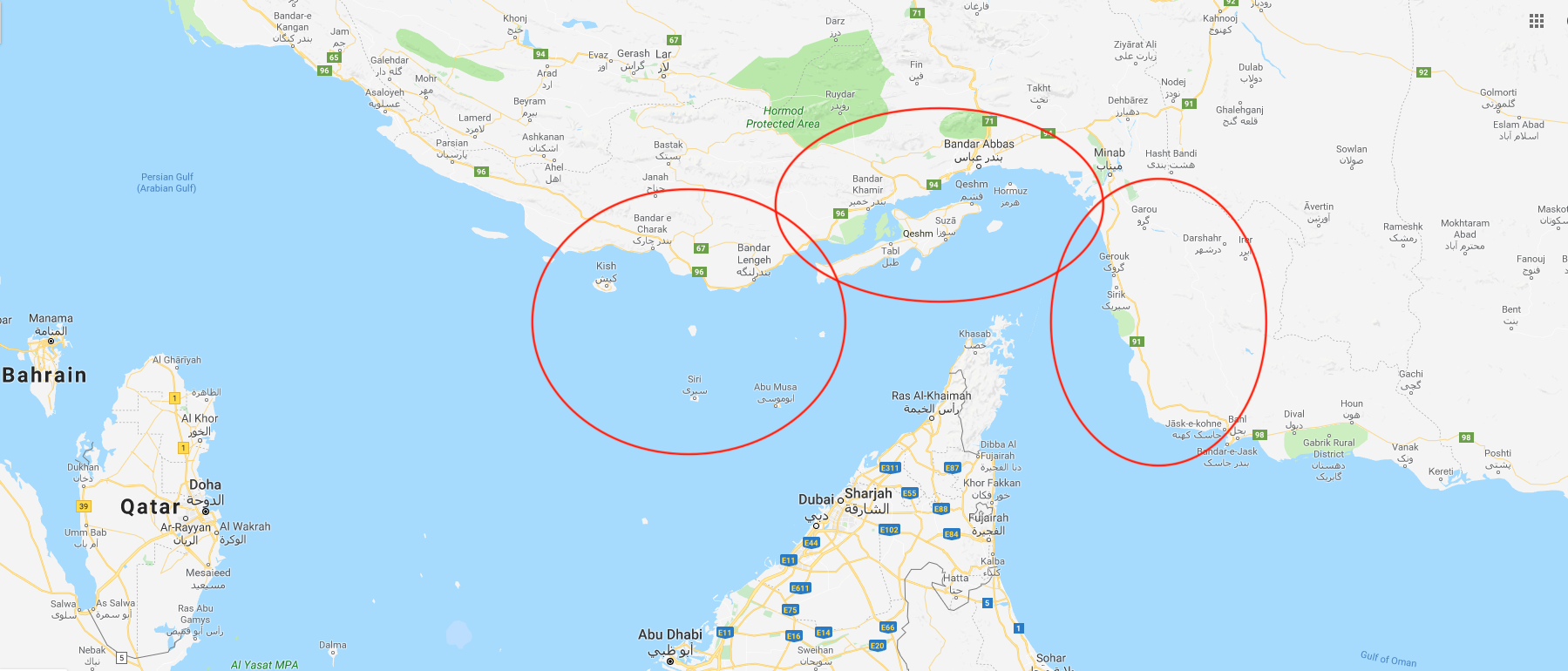Iran would have big problems if it attempted to close the Strait of Hormuz, the only passage out of the Persian Gulf and into the Indian Ocean.
But that’s exactly what Iranian leaders threatened to do this week. Motivated by U.S. warnings that sanctions will be imposed on any nation that buys Iranian oil exports after Nov. 4, on Tuesday, President Hassan Rouhani said that the “[U.S. warning] has no meaning for Iranian oil not to be exported, while the region’s oil is exported.” On Thursday, Iranian Revolutionary Guard commander Ali Jafari declared that “either everyone or no one can use the Strait of Hormuz.”
As I say, this would be a very bad idea for Iran.
Don’t get me wrong, with 20-30 percent of global oil exports passing through the narrow strait, Iran’s threats cannot be taken lightly. The Islamic Republic has a large stockpile of maritime mines, capable anti-ship missiles, and a sizable navy. On paper, these capabilities would allow the ayatollah’s forces to close the strait and stop shipments from Kuwait, the United Arab Emirates, Bahrain, and Qatar. Saudi oil exports would have to be relocated to the kingdom’s Red Sea ports. If carried out successfully, a strait closure would cause spiking global oil prices, rising gas prices, and deep fear in the financial markets. This screenshot from MarineTraffic.com shows the scale of shipping that passes through the strait (the red square) each day.

Still, Iran’s power potential here must be measured against its counterbalance: the U.S. military and its allies. It’s a crucial consideration in that the U.S. military’s Central Command, CENTCOM, has a well-developed plan to keep the strait open.
Developed by now-Secretary of Defense Jim Mattis when he was commanding CENTCOM between 2010 and 2013, the plan involves employing a rapid multinational effort to prevent Iranian mine-laying and systematically clear any mines already deployed. And it’s a very good plan. The multinational focus is designed to deter Iranian escalation against marginal adversaries like France and utilize boutique capabilities such as those of Britain’s Royal Navy mine hunters.
Iran previously assumed that closing the strait would lead Western leaders to negotiate a peace favorable to Iran in fear of rising energy costs at home, but now things have changed. The Pentagon now focuses on creating ever-enlarging safe passages through minefields so that oil tankers can quickly return global supplies to normal levels. And while the Iranian Navy and the Revolutionary Guard Navy (two separate organizations) know they cannot challenge the U.S. in a conventional naval contest, they have developed a fleet of small fast-attack boats to sneak up on larger, slower, and less agile U.S. vessels. Again, however, U.S. tactics mitigate that threat by focusing on destroying the Iranian fleet at long and short range.
Ultimately, Iran is aware that any effort to challenge U.S. mine-removal or countermine activities would result in immediate U.S. escalation. To be sure, the hardliners might desire such an escalation in the hope that it would weaken the more moderate political bloc around Rouhani and isolate the U.S. from its European allies, but the costs of that calculation are severe. My map below shows the Iranian military and missile bases that could be targeted by the U.S. in any conflict.

If those centers started attacking or supporting attacks on U.S. or allied interests, they would be annihilated. In the context of its weak economy, its operations in Syria, and its long-term regional struggle with the U.S., Saudi Arabia, and Israel, the hardliners must consider whether any possible presumed gains in challenging the U.S. would be outweighed by the costs.
That speaks to the central balance of considerations here.
Ultimately, Iran’s tactical vulnerability and the broader strategic environment mean that the Strait of Hormuz would be unlikely to remain closed for more than a week if Iran mined it. And for Iran, moderates and hardliners alike, the costs would be catastrophic.
